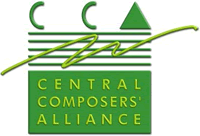Robert Sherlaw Johnson (21 May 1932, in Sunderland, England – 3 November 2000) [and a founder member of the Central Composers’ Alliance], was a British composer, pianist and music scholar. Sherlaw Johnson was one of that group of post-war British musicians whose work reflected wider European interests in new ideas, techniques and aesthetics. While his work and influence were wide-ranging, he is particularly noted for his advocacy and performance of the music of Olivier Messiaen. Sherlaw Johnson was educated at Gosforth Grammar School in Newcastle-upon-Tyne, at King´s College, Durham, and at the Royal Academy of Music, London, where he was the recipient of a Charles Black award. He used this to travel to Paris, where he studied piano with Jacques Février and composition with Nadia Boulanger, and attended Olivier Messiaen’s classes at the Conservatoire de Paris. In 1971 he was awarded the degree of DMus by Leeds University (for a meticulous higher doctoral thesis on Messiaen´s use of birdsong) and in 1984 was elected to a Fellowship of the Royal Academy of Music. He also received a DMus from Oxford in 1990, in recognition of his work as a composer. Sherlaw Johnson taught at Leeds University (1961-3), Bradford Girls´ Grammar School (1963-5), University of York (1965–70) and Oxford University (1970–1999), where he was music Fellow at Worcester College. In 1985 he was visiting professor of composition at the Eastman School of Music, University of Rochester. Notable composition pupils include Stephen Oliver, Charles Bodman Rae, and Robert Saxton (who succeeded Sherlaw Johnson at Worcester College). Sherlaw Johnson was to the last an enthusiastic campanologist. He died while ringing bells at the historic tower of Appleton, south-west of Oxford. Sherlaw Johnson´s time in Paris exerted its mark on his professional development. He came to be known for his performances and recordings of Messiaen´s piano and (as accompanist) vocal music. The insight this gave him is evident in his monograph on the composer, which remains a standard English-language text on its subject. Some of his own earlier compositions show the influence of Messiaen, Varèse and Boulez. His work subsequently moved in a more individual direction, but his continuing sympathy with the European musical avant garde is evident in his interest in serialism, fractal music and extended performance techniques. These interests can be seen in works such as Green Whispers of Gold and Praise of Heaven & Earth, for voice, piano and tape. He also wrote and lectured on mathematics and music, and founded the Electronic music Studio at Oxford University. [from the Wikipedia entry]
|

|
Robert Sherlaw Johnson

